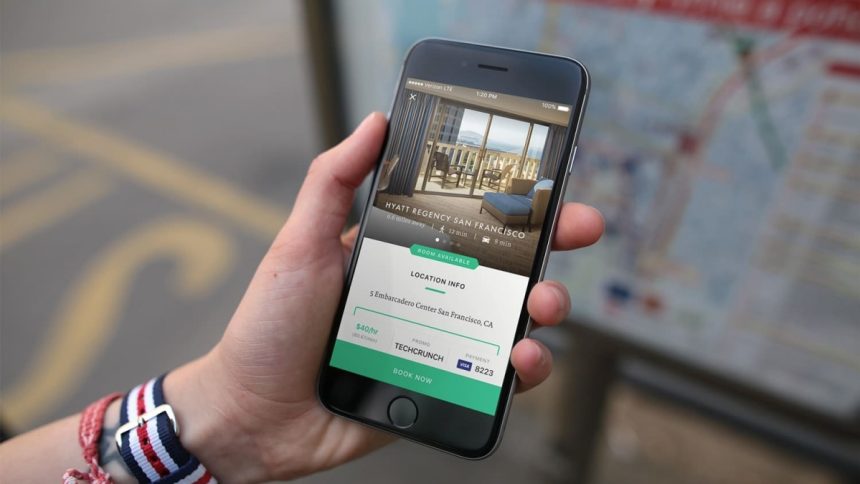Are you a travel agent, tour operator, or OTAs looking to make your booking website or app stand out? With the right hotel search API, you can access real-time rates, availability, property details, and more to integrate into your product. But not all APIs are created equal. You need one that’s fast, flexible, and offers global coverage. That’s where RateHawk comes in. Their API connects you to 2.5 million (2.5M+) hotels worldwide, with capabilities like geographic search, rate filtering, and personalized sort. You can build unique travel products to meet customer demand. So if you’re ready to boost conversions and take your travel business to the next level, it’s time to check out RateHawk’s hotel search API.
The Benefits of Using a Hotel Search API
Connecting your travel website or app to a hotel search API opens up a world of opportunity. With real-time access to rates and room inventory across hundreds of thousands of hotels worldwide, you can show your customers the latest deals and exactly what’s available for their selected dates of travel. A hotel search API allows you to maintain your own unique branding while tapping into a huge database of hotels. You have control over the look and feel of the search results on your site. Building your own database of hotels, rates and availability is a massive undertaking. Using an API eliminates the need to spend years aggregating this data yourself. When customers are searching for hotels on your site, you have a chance to upsell them on rental cars, activities, travel insurance and more. A robust API will provide you with the details for upselling based on the customer’s trip.
Key Features to Look for in a Hotel API
If you run a travel business, a hotel API can be a game changer. By accessing real-time rates and availability from hundreds of thousands of hotels worldwide, you can build a better product for your customers. But with so many options out there, how do you choose?
· Comprehensive Hotel Coverage
The more hotels an API covers, the more choice you can offer your customers. Look for an API that provides rates and availability for hotels in destinations around the globe, from major chains to independent boutiques.
· Real-Time Data
In the travel industry, rates and availability change constantly. An API that offers real-time data means you can provide the latest prices and room options to your customers. Anything less than real-time means the information you’re displaying could be out of date.
· Flexible Filtering Options
Every traveler has their preferences, so a robust filtering functionality is key. An API should allow you to filter by amenities like WiFi or parking, star rating, brand, and more. The more filters an API offers, the more tailored the experience you can provide.
· Developer-Friendly
If you want to get up and running quickly, choose an API with thorough documentation and support. Look for sample code in multiple languages, intuitive APIs, and a helpful support team to answer any questions. The easier an API is to implement, the faster you can build an incredible product.
Integrating a Hotel API Into Your Travel Website
So you’re building a travel website and want to offer hotel bookings. A hotel API can help by providing real-time rates, availability and booking capabilities to complement your site. Here’s how to get started integrating a hotel API.
1. Find a Hotel API Provider
There are several options for hotel APIs, including RateHawk, Booking.com and Expedia Partner Solutions. Compare their offerings to find one that suits your needs. Look for a robust inventory, competitive rates, and an easy-to-use API.
RateHawk, for example, offers over 1 million hotels worldwide and XML and JSON APIs to connect to their database. Their documentation makes the integration process straightforward for developers of all skill levels.
2. Register for an Account
Once you choose a provider, register for an account to get your API keys and login credentials. Follow their instructions to create a developer account and register your application. You’ll use this info to authenticate requests to their API.
3. Make API Calls
You can now make calls to the API to request hotel data. This includes searches for hotels by location and date, getting details for a specific hotel like amenities and photos, and booking a reservation.
For example, to search RateHawk for hotels in Honolulu from January 15 to 20, 2020, you’d make a request to their API endpoint with your API key, the city name, check-in and check-out dates. The response would contain a list of available hotels with rates, star ratings, locations and more. Display these results on your site so users can view hotels and rates, then book directly through your API integration. Users can book by sending reservation details like hotel ID, room type, and payment info to the booking endpoint in the API.
4. Update Availability and Rates
Hotel rates and availability change frequently, so you’ll want to set up a process to automatically update this data on your site through the API. Most providers offer webhooks or polling to get notified when rates or availability for a hotel changes. You can then make API calls to get the latest details and update your site.
Frequently Asked Questions
What exactly is a hotel search API?
A hotel search API is an application programming interface that allows you to access live hotel rates, availability, and booking functionality from multiple providers through one connection.
How can a hotel API help my business?
Hotel APIs provide access to huge inventories of hotels at the best available rates. By integrating an API into your website or app, you can offer customers a huge selection of hotels to choose from.
What kinds of data can I access through a hotel API?
- Hotel name, star rating, amenities, and location
- Room types, layouts, sizes, and current rates
- High-quality photos of rooms, lobbies, pools and more
- Guest reviews and ratings
- Real-time availability and the ability to book instantly
Conclusion
You don’t have to go it alone when it comes to finding the best hotel rates for your travelers. With the right hotel search API, you can build a travel business that delights customers with personalized experiences at affordable prices. Integrating a solution like RateHawk puts the power of hotel search directly in your hands. You can quickly compare rates across hundreds of sites to find the best deals, then use that data to craft custom packages based on your travelers’ unique needs. Who knows – you may even be able to undercut OTAs with your own competitive rates! The possibilities are endless when you make savvy tech decisions. Want to take your travel biz to the next level? Visit ratehawk.com to learn more about how their API can help you boost conversions and bolster your bottom line. The future looks bright for smart travel startups.
Lynn Martelli is an editor at Readability. She received her MFA in Creative Writing from Antioch University and has worked as an editor for over 10 years. Lynn has edited a wide variety of books, including fiction, non-fiction, memoirs, and more. In her free time, Lynn enjoys reading, writing, and spending time with her family and friends.















